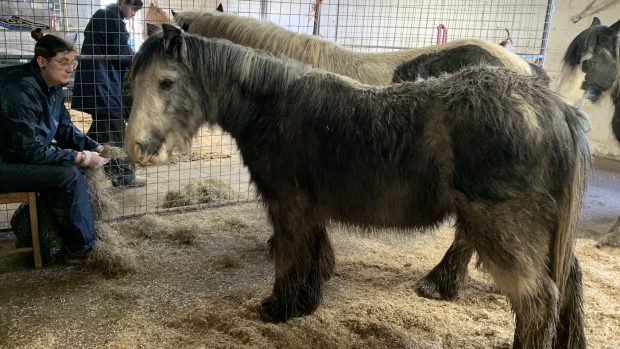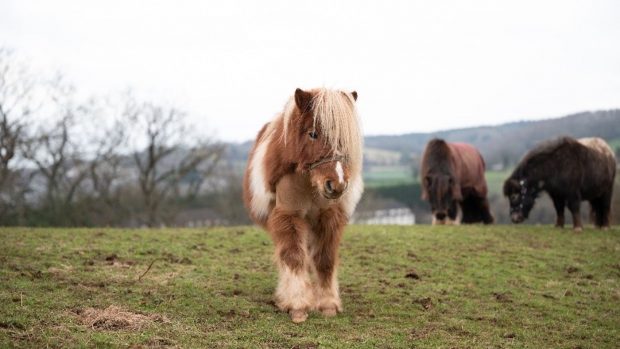Horse charities have responded with relief to the conviction of Buckinghamshire horse trader James Gray, his 16-year-old son James, wife Julie and daughters Jodie and Cordelia, for the wanton neglect of horses at the farm in Hyde Heath.
But what happened and why remains unanswered.
Thirty-two dead and 111 barely alive horses were found in squalid conditions at the farm near Amersham in January last year.
They had little or no feed, water and bedding and were crammed into stalls or tied to walls, fetlock-deep in their own filth. Piles of bones and part-rotted carcasses lay in pens and fields. Salmonella, strangles and worms were rife.
Investigations by police, Buckinghamshire Trading Standards and the RSPCA led to the private prosecution by the RSPCA under the Animal Welfare Act 2006.
The family will be sentenced on 12 June.
Speaking after the trial, RSPCA rehoming officer Sally Learoyd said: “There is no way of knowing what Gray was doing at Spindle Farm. His operation was kept behind a high wall and as clandestine as possible and it did not come out during the trial.
“He is present at markets around the UK and abroad, buying and selling. The horses we found at Spindle Farm were not fit to go to a market, but who knows where he was planning to sell them.”
Responding to tip-offs from the public the RSPCA had visited the farm on several occasions before the rescue but said conditions were “acceptable”.
“We reacted to every call about Mr Gray,” said RSPCA officer Kirsty Hampton.
In court Gray claimed 2,400 horses, ponies and donkeys pass through his yard each year.
Speaking during the case, former president of the Royal College of Veterinary Surgeons John Parker, who was an expert witness for the defence, said: “Mr Gray operates at a level of enterprise that is not apparent to the great majority of the public. It is far from every equid that has the luxury of a doting home. The RSPCA in this case has little concept of the basic levels of horse farming.”
For this article in full, see the current issue of Horse & Hound (14 May, ’09)




